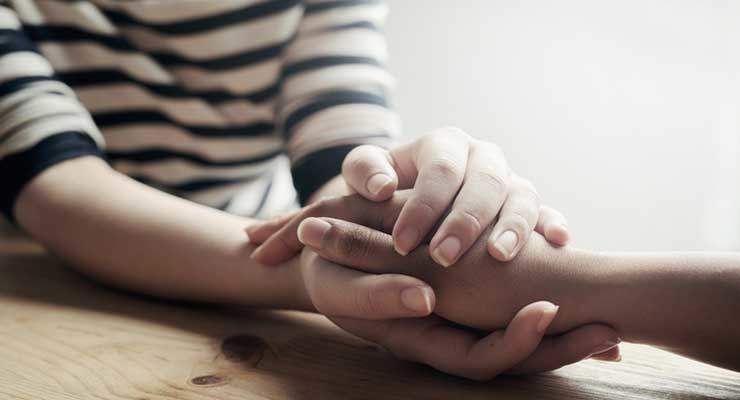It is difficult to know the right thing to say to someone who has lost a loved one. You want to comfort them, not make matters worse. Here are some things you should say and some things you shouldn’t say at a funeral, wake, or whenever you encounter someone who is grieving.
Comforting Things to Say or Do:
• Say “You’re not alone – I’m here for you whenever you need me” and mean it.
• Say “I can’t imagine how painful this must be for you” because you really can’t. Even if you have also lost someone in your life, everyone handles grief and loss differently.
• Say “Grief is a normal and natural reaction to loss.” Make them realize that what they’re feeling is normal and they can take as long as they want to heal.
• Ask for specific things you can do to support the grieving individual – like bringing over a home-cooked meal, helping out with a chore, etc.
• Talk about their loved one. Some people may not bring up the lost loved one so as not to hurt the grieving or create an awkward situation, but in fact, many grieving individuals find it comforting to talk about their loved one. Letting them know you care is always better than saying nothing at all.
• If you can’t be there to comfort an individual in person, then a phone call and a personalized condolence card will be appreciated.
• Listen. If the grieving person wants to talk and cry, let them. Offer a comforting pat on the back or a hug.
• Continue to be there and support the grieving person weeks and months after the loss. Most people stop visiting and sending their condolences after a few weeks, but the grieving person is still hurting. Beyond being shocked by their loss, they are now experiencing life without that person. They may feel lonelier than ever during this time.
Things You Shouldn’t Say or Do:
• Don’t say “Don’t feel bad.” Of course they feel bad and it’s totally normal to do so.
• NEVER say “At least you have other children.” Other children cannot replace a lost child.
• Don’t say “You’re young. You can get another husband/wife/child.” Again, don’t mention anything about replacing a lost one. That won’t take away the pain.
• Don’t say, “I understand.” You can’t possibly understand how that specific individual is handling their loss.
• Don’t ask “How are you doing?” It’s hard to answer a question like that. This is a common thing that comes to mind when you first see a grieving person, but instead, you could ask, “Are you hanging in there?” Something a lot easier to answer.
• Don’t say “Time heals all wounds” because for the grieving individual, imagining a life without their loved one is, well, unimaginable.
• Don’t tell the person how you would feel in the situation or how they should be feeling. Legitimize their feelings.
• If the grieving individual doesn’t want to share, then respect their wishes and give them some space. You have done your best to show you are there for them.
Hope this helps direct you when interacting with someone who has lost a loved one. If you have anything to add to this list or would like to share your own personal experience with grief, please feel free to comment below.





